The top foods for building muscle tend to be rich in protein and low in saturated fat. That said, combining strength training with a balanced diet that includes carbohydrates and fats yields the best outcomes.
Both nutrition and consistent exercise are essential for developing muscle.
Protein-rich foods play a central role in preserving and creating muscle mass.
Alongside resistance training, evidence indicates consuming about 1.6–2.2 grams of protein per kilogram of body weight per day helps maximize muscle growth.
Still, it’s crucial to maintain a balanced diet that includes healthy carbs and fats. These macronutrients also contribute to muscle building, particularly for those engaged in intense training.
Continue reading to discover 26 foods that may support gaining muscle.

Muscle-building foods for gaining lean muscle
Eggs are a valuable food for muscle growth and recovery.
Proteins are composed of amino acids, the foundational units of protein.
Eggs are abundant in the amino acid leucine, which is particularly important for optimizing how your body synthesizes protein for muscle gain.
Eggs also supply several other nutrients that may support muscle building, including:
- phospholipids
- omega-3 fatty acids
- cholesterol
- vitamin D
Salmon is an excellent option for muscle development and general health.
Each 3-ounce (85-g) portion of salmon provides roughly 22 g of protein, about 1.5 g of omega-3 fats, and a range of B vitamins.
Omega-3 fatty acids support muscle health. Research suggests that taking around 3 g of omega-3 fatty acids per day may help promote muscle mass.
Chicken breast is frequently viewed as a go-to food for building muscle because it’s dense in protein. A 3-ounce (85-g) portion contains about 26 g of high-quality protein.
Chicken breast also supplies significant amounts of the B vitamins niacin and B6, which may help your body function optimally during the exercise needed for muscle gains.
A study found that consuming protein-rich foods like chicken after workouts may help reduce fat while increasing muscle mass and strength.
Dairy products provide a combination of fast-digesting whey protein and slower-digesting casein protein.
However, not all dairy contains the same amount of protein. For instance, Greek yogurt often has roughly three times the protein of regular yogurt.
Greek yogurt is a versatile snack, and consuming it post-workout or before bed may be especially advantageous due to its blend of fast- and slow-digesting proteins.
Tuna delivers nearly 20–22 g of protein per 3-ounce (85-g) serving. It’s also rich in vitamin A and several B vitamins, including B12, niacin, and B6.
These nutrients are vital for overall health, energy, and exercise performance.
Additionally, tuna contains substantial omega-3 fatty acids, which may benefit muscle health by helping slow age-related declines in muscle mass and strength.
Beef is loaded with high-quality protein, B vitamins, minerals, and creatine.
Some research indicates that lean red meat consumption can enhance the amount of lean mass gained with exercise.
When trying to build muscle, choose beef options that support gains without unnecessarily increasing calories.
For example, 4 ounces of 70% lean ground beef contain about 235 calories and 16 g of fat, whereas the same amount of 95% lean ground beef offers slightly more protein with only 170 calories and 6 g of fat.
Shrimp are nearly pure protein. Each 3-ounce (85-g) serving provides around 20 g of protein, 1.44 g of fat, and 1 g of carbs.
Like many animal proteins, shrimp are rich in leucine, which is essential for effective muscle growth.
Including shrimp in your meals is an easy way to boost protein intake without adding many extra calories.
Half a cup (86 g) of cooked soybeans supplies about 14 g of protein and healthy unsaturated fats. They’re also a good source of vitamin K, iron, and phosphorus.
Iron helps organs, bones, and muscles function properly by storing and transporting oxygen. Iron deficiency can impair these processes.
One cup (226 g) of low-fat cottage cheese delivers about 28 g of protein, including a notable amount of leucine, the key muscle-building amino acid.
Like other dairy items, cottage cheese comes in various fat levels. Higher-fat varieties such as creamed cottage cheese contain more calories.
Pick the version that aligns with your calorie goals.
A 3-ounce (85-g) serving of turkey breast contains roughly 24 g of protein and nearly zero fat or carbs.
Turkey is also a solid source of niacin, a B vitamin that helps metabolize fats and carbohydrates.
Tilapia is another seafood high in protein.
An 87 g fillet offers approximately 22 g of protein, plus good amounts of vitamin B12 and selenium.
Vitamin B12 is important for the health of your blood cells and nervous system, which can support the exercise needed for muscle growth.
Many types of beans can fit into a diet aimed at developing lean muscle.
Common varieties such as black, kidney, and pinto beans contain about 15 g of protein per cooked cup (around 172 g). They’re also excellent sources of:
- fiber
- B vitamins
- magnesium
- phosphorus
- iron
While whole foods should be the foundation of any diet, supplements can sometimes be helpful.
Protein shakes may make it easier to meet your protein goals if you struggle to consume enough through food alone.
Dairy-based protein powders like whey and casein are common, but other powders use soy, pea, beef, or chicken protein.
Edamame refers to immature soybeans served in their pods and used in many dishes.
One cup (155 g) of frozen edamame supplies about 17 g of protein and 8 g of fiber. It also contains high levels of folate, vitamin K, and manganese.
Folate helps your body synthesize the building blocks of protein and may be important for preserving muscle mass and strength, especially in older adults.
Although protein-dense foods are key for lean muscle, you also need fuel to train effectively.
Carbohydrate-rich foods supply this energy.
Cooked quinoa contains about 39 g of carbs per cup (185 g), along with 8 g of protein, 5 g of fiber, and notable amounts of magnesium and phosphorus.
Magnesium is involved in muscle and nerve function, both of which are engaged with every movement.
Like shrimp, tilapia, and lean poultry, scallops offer protein with very little fat.
If you want to increase protein intake without many extra calories, these lean seafood choices are useful.
Three ounces (85 g) of scallops provide about 17 g of protein and fewer than 100 calories.
When you’re traveling, you may want convenient sources of high-quality protein such as lean jerky.
Various meats can be turned into jerky, so nutrition varies. Most fat is removed in processing, so most calories in jerky come from protein.
These animal-based proteins are high quality and effectively stimulate muscle protein synthesis.
Chickpeas, or garbanzo beans, are a nutritious source of both carbs and protein.
Each 1-cup (164-g) serving of canned chickpeas gives about 15 g of protein and 45 g of carbs, including 13 g of fiber.
As with many plant proteins, chickpea protein is considered lower quality than animal proteins, but it still has a place in a balanced muscle-building diet.
Peanuts offer a combination of protein, fats, and carbs. A 1-ounce (28-g) serving contains about 7 g of protein, 6 g of carbs, and a substantial amount of unsaturated fats.
This portion of peanuts provides approximately 166 calories. If you struggle to consume enough calories to support muscle gain, peanuts can be a calorie- and nutrient-dense option.
Buckwheat is a seed often ground into flour and used as an alternative to wheat flour.
One cup (168 g) of cooked buckwheat groats contains about 6 g of protein, plus significant fiber and carbohydrates.
Buckwheat is prized for its vitamin and mineral profile, supplying B vitamins, magnesium, manganese, and phosphorus.
These micronutrients help keep your body healthy and capable of performing muscle-building workouts.
Tofu is made from soy milk and frequently serves as a meat substitute. Soy protein, found in tofu and soybeans, is considered one of the higher-quality plant proteins.
Each half-cup (124 g) of raw tofu contains around 10 g of protein, 6 g of fat, and 2 g of carbs.
Tofu is also a good source of calcium, which is important for proper muscle function and bone strength.
Pork tenderloin is a lean meat cut that supplies about 26 g of protein and only 2 g of fat per 4-ounce (113 g) serving.
Some research has shown that pork can have effects on muscle similar to other protein-rich foods like beef and chicken.
Cow’s milk provides a balance of protein, carbs, and fats.
As with other dairy, milk contains both fast- and slow-digesting proteins.
Studies suggest that drinking cow’s milk alongside resistance training may help increase lean muscle mass and strength.
One ounce (28 g) of roasted almonds supplies about 6 g of protein and ample vitamin E, magnesium, and phosphorus.
Phosphorus helps your body use carbohydrates and fats for energy at rest and during activity.
Like peanuts, almonds should be eaten in moderation due to their high calorie density. Half a cup of blanched almonds contains over 400 calories.
Similar to beef, bison offers about 22 g of protein per 3-ounce (85-g) serving.
However, a study found bison may have advantages over beef regarding heart disease risk.
Swapping some beef for bison can be an option if you enjoy red meat but are mindful of cardiovascular health.
Although cooked brown rice contains only about 5 g of protein per cup (202 g), it supplies the carbs needed to fuel your workouts.
Eating healthy carbs like brown rice or quinoa before exercise can enable you to train harder, providing a stronger stimulus for muscle growth.
Additionally, some research indicates rice protein supplements can produce similar muscle gains to whey protein during resistance training programs.
What foods to limit or avoid to build muscle?
Certain foods and drinks may hinder your muscle-building progress. These include:
- alcohol
- ultra-processed foods
- deep-fried foods
- greasy foods
- refined carbohydrates
- added sugars
- sugar-sweetened drinks, such as soda
Occasional consumption of these items won’t derail your muscle goals, but the bulk of your calories should come from nutrient-dense whole foods.
Frequently asked questions
How to gain muscle fast?
Both proper nutrition and consistent resistance exercise are crucial for building muscle. A 2019 review suggests a calorie surplus of around 250–500 calories, paired with regular strength training, supports muscle gain. Research also recommends roughly 1.6–2.2 g of protein per kilogram of body weight per day to help maximize muscle mass.
What foods build muscle fast?
Some protein-packed foods may help you develop muscle more quickly than others. These include eggs, chicken, salmon, Greek yogurt, skim milk, and various beans.
What foods to eat to bulk up?
“Bulking” means maintaining a calorie surplus—consuming more energy than you expend. For optimal muscle growth, a clean bulk emphasizing balanced intake of healthy fats, carbs, and proteins is preferable to simply eating calorie-dense junk. Foods to consider include chicken, shrimp, eggs, salmon, brown rice, quinoa, sweet potatoes, and fruit.
Takeaway
Many foods can help you gain lean muscle. Most are rich in protein and support recovery and growth following activity.
It’s also essential to include carbohydrates and fats to fuel workouts and daily physical activity.
Using nutrition tracking apps to monitor your daily protein and calorie intake can help you stay focused on your muscle-building objectives.


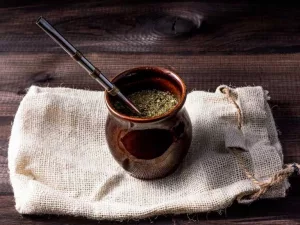
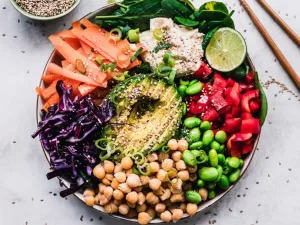

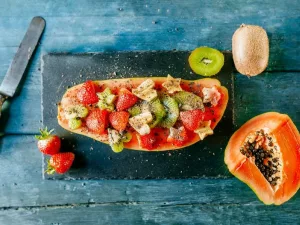

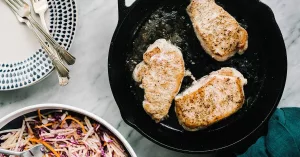
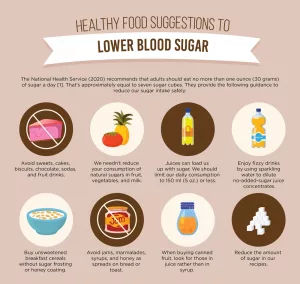
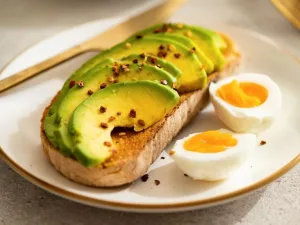

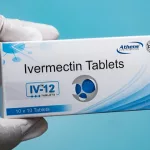
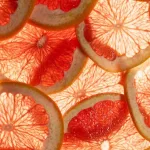












Leave a Reply
You must be logged in to post a comment.